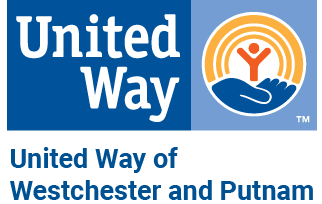
Monday Keynote Session: Empowering Personal and Community Resilience with Dr. George S. Everly
If the video doesn’t start playing, please hit refresh in your browser.
Continuing the Conversation
Learning Opportunities Related to Personal and Community Resilience
Read
What is Resilience and Why is It Important to Bounce Back? by Courtney Ackerman.
Points to Highlight
● “Resilience is that ineffable quality that allows some people to be knocked down by life and come back stronger than ever. Rather than letting failure overcome them and drain their resolve, they find a way to rise from the ashes.”
● “So what is mental toughness? Mental toughness is “a personality trait which determines in large part how individuals deal with stress, pressure and challenge irrespective of circumstances” (Strycharczyk, 2015). It’s part hardiness (optimism and predisposition towards challenge and risk), part confidence, and it is what allows people to take whatever comes in stride, with a focus on what they can learn and gain from the experience. While the association with resilience is understandable, it’s also easy to see where they differ: resilience is what helps people recover from a setback, but mental toughness can help people avoid experiencing a setback in the first place. As Doug Strycharczyk puts it, “All mentally tough individuals are resilient, but not all resilient individuals are mentally tough” (2015).”
● “Although you might read about resilience (and all of the many, many traits related to it) and think that it applies to only the most inspiring, impressive, and awesome among us, resilience is surprisingly common. As the APA Help Center’s piece on resilience states, “Research has shown that resilience is ordinary, not extraordinary. People commonly demonstrate resilience.””
● “Further, resilience experts Harry Mills and Mark Dombeck point to research that resilience boosts immune system functioning. Resilient people are able to better manage negative emotions and experience more positive emotions, which leads to objectively good health outcomes like more immune system cells and better immune functioning in cancer patients, and more favorable mortality rates in marrow transplant patients (n.d.).”
Read
Public Health Emergency – Community Resilience by the U.S. Department of Health & Human Services.
Points to Highlight
● “Community Health Resilience (CHR) is the ability of a community to use its assets to strengthen public health and healthcare systems and to improve the community’s physical, behavioral, and social health to withstand, adapt to, and recover from adversity.”
● “Community resilience focuses on enhancing the day-to-day health and wellbeing of communities to reduce the negative impacts of disasters.”
● “Key preparedness activities—such as continuity of operations plans for organizations, reunification plans for families, and compiling disaster kits and resources—continue to be essential, recommended steps to take. A resilience approach adds features like building social connectedness and improving everyday health, wellness, and community systems.”
● “Individual health and resilience is important for community resilience because healthy, socially connected, prepared people make for stronger communities that are better able to withstand, manage, and recover from disasters.”
Watch
Respond:
336 Central Park Avenue
White Plains, NY 10606
914.997.6700
Privacy Policy
Board Portal
Career Opportunities

